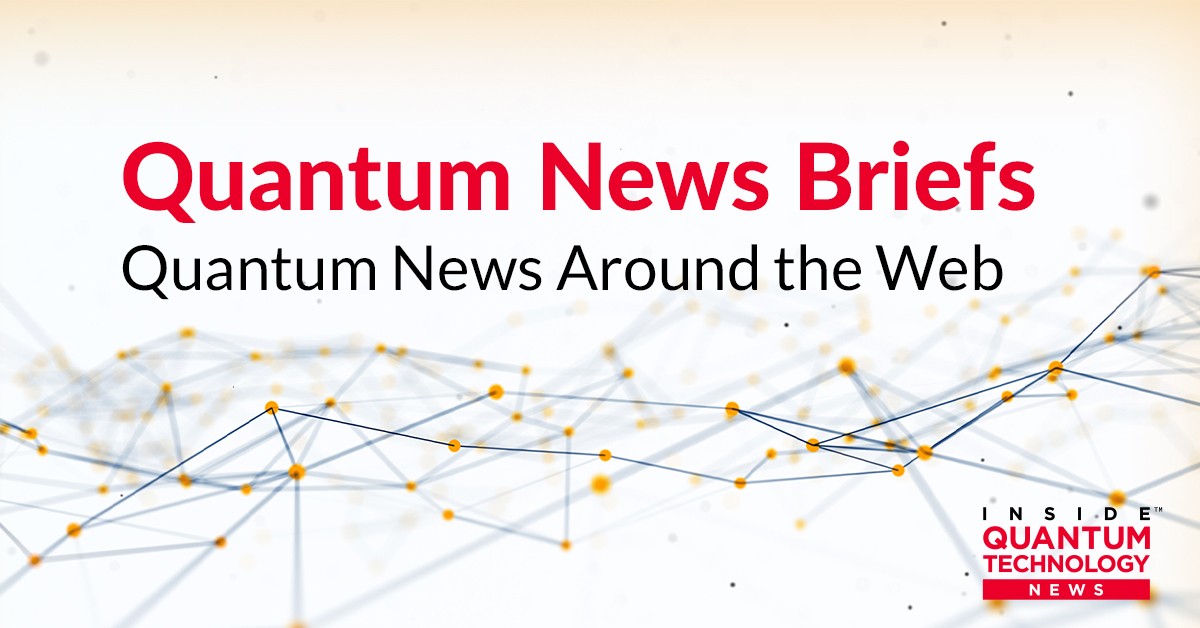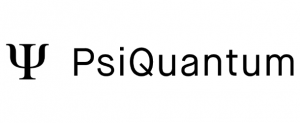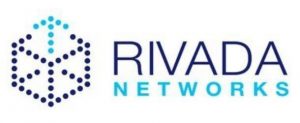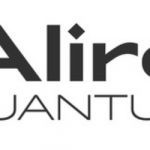Quantum News Briefs October 20: PsiQuantum secures $22.5M contract with Air Force Research Labs, Rivada Space Networks signs MoU with SpeQtral to develop ultra-secure communications for government & enterprise worldwide, VW Working with Xanadu to develop better EV batteries & MORE

Quantum News Briefs October 20 opens with the announcement that PsiQuantum has secured a $22.5M contract with the Air Force Research Labs followed by Rivada Space Networks signing MoU with SpeQtral to develop ultra-secure communications for government & enterprise worldwide. Third is the news about VW Working with Xanadu to develop better EV batteries AND & MORE.
*****
PsiQuantum secures $22.5M contract with Air Force Research Labs
 PSI Quantum has announced Air Force Research Laboratory (AFRL) in Rome, N.Y., to formalize their partnership in quantum computing. This project enables a collaboration between PsiQuantum and AFRL on quantum photonic chips, which are used to control and process qubits based on single photons – particles of light. These advanced quantum photonic chips will be co-designed by PsiQuantum and AFRL and manufactured at a semiconductor fab in Malta, N.Y.
PSI Quantum has announced Air Force Research Laboratory (AFRL) in Rome, N.Y., to formalize their partnership in quantum computing. This project enables a collaboration between PsiQuantum and AFRL on quantum photonic chips, which are used to control and process qubits based on single photons – particles of light. These advanced quantum photonic chips will be co-designed by PsiQuantum and AFRL and manufactured at a semiconductor fab in Malta, N.Y.
This contract further advances the photonic approach to quantum computing, a strategy that is based on the idea of leveraging existing, mature semiconductor manufacturing capabilities to accelerate the path to scale.
“The deep silicon photonics expertise of PsiQuantum is critical in our mission to not only accelerate the advancement and deployment of quantum information science, but in developing capabilities to meet the needs of the emerging national security landscape,” said Dr. Michael Hayduk, Deputy Director at AFRL. “The partnership with PsiQuantum supports both the United States Department of Defense’s and AFRL’s missions of pursuing long-term, broad-based research programs that ultimately lead to world-changing applications across multiple industries.”
This partnership was enabled by the $25 million in federal funding announced in April by the U.S. Senate Majority Leader Charles E. Schumer to advance the partnership between AFRL, PsiQuantum, and GlobalFoundries as part of the Fiscal Year 2022 spending package.
“The future of quantum computing technology is being developed right here in Upstate New York, and PsiQuantum, GlobalFoundries, and the Rome Air Force Research Lab are leading us into the next frontier,” said Senator Schumer. “I was proud to deliver the federal funding to grow this partnership, that will strengthen our national security, create good-paying jobs, and further fuel Upstate New York’s leadership in the tech economy to help the U.S. stay ahead of all rivals, including China, in technological innovation.”
*****
Rivada Space Networks signs MoU with SpeQtral to develop ultra-secure communications for government & enterprise worldwide
 Rivada Space Networks GmbH, a global network company launching a constellation of 600 low-earth-orbit satellites (LEO) to enable secure, global connectivity for governments and enterprises, announced it has signed a partnership agreement with SpeQtral, an emerging leader in quantum-secure communications systems.
Rivada Space Networks GmbH, a global network company launching a constellation of 600 low-earth-orbit satellites (LEO) to enable secure, global connectivity for governments and enterprises, announced it has signed a partnership agreement with SpeQtral, an emerging leader in quantum-secure communications systems.
Quantum-secure communications systems and specifically Quantum Key Distribution (QKD) technology are seen as crucial elements in the development of forthcoming highly secure, satellite-enabled connectivity networks. QKD uses quantum entanglement to distribute encryption keys to secure communications networks. SpeQtral’s QKD technology platform enables the creation and distribution of computationally uncrackable encryption keys, by leveraging the laws of physics instead of computational algorithms.
Rivada Space Networks (RSN) is partnering with SpeQtral to demonstrate the technical compatibility of adding a QKD encryption layer to enhance the security of communications over low earth orbit (LEO) satellite constellations. In 2024, RSN will start the launch of its 600-satellite laser-connected constellation with four precursor satellites and SpeQtral will launch its QKD satellite, SpeQtral-1. This will allow RSN and SpeQtral to jointly establish quantum-secure data links over the RSN precursor satellites and validate both the space and ground station terminals required for QKD-enabled encrypted traffic on the Rivada Space Networks constellation.
Severin Meister, CEO of RIvada Space Networks GmbH added: “Recent events in Ukraine have demonstrated that we are increasingly reliant on the commercial satellite sector and in particular new satellite constellations to provide high-performance, resilient communications infrastructure. Security is a key attribute of Rivada’s unique gateway-less architecture and we believe leveraging quantum technology will enable us to deploy the most secure communications network in the world.
*****
VW Working with Xanadu to develop better EV batteries
 Volkswagen has signed an agreement with Canadian quantum technology company Xanadu to work jointly on developing better battery materials, which are safer, lighter, and more cost-effective.
Volkswagen has signed an agreement with Canadian quantum technology company Xanadu to work jointly on developing better battery materials, which are safer, lighter, and more cost-effective.
Xanadu, a Toronto-based tech company focuses on cloud-accessible photonic quantum computers and develops open-source software for quantum machine learning and simulating quantum photonic devices. Volkswagen will use its expertise to reduce its computational costs and accelerate the adoption of quantum computers within its EV battery research and development teams. Ultimately, the German automaker wants to achieve a more accurate and efficient simulation of battery materials.
Volkswagen and Xanadu have already engaged in different research activities across material science and battery technology and have set the foundation for the program’s long-term research path. Under the new agreement, the two companies will work together to develop advanced quantum algorithms for simulating battery materials. The calculations and simulations will be processed by Xanadu’s next-generation fault-tolerant quantum computers.
*****
Physicists got a quantum computer to work by blasting with Fibonacci Sequence
A team of physicists say they managed to create a new phase of matter by shooting laser pulses reading out the Fibonacci sequence to a quantum computer in Colorado according to Isaac Schultz in Gizmodo on October 19. Quantum Tech Briefs summarizes below.
Quantinuum’s quantum computer was used in the recent discovery. The matter phase relies on a quirk of the Fibonacci sequence to remain in a quantum state for longer.
Just as ordinary matter can be in a solid, liquid, gas, or superheated plasmic phase (or state), quantum materials also have phases. The phase refers to how the matter is structured on an atomic level—the arrangement of its atoms or its electrons, for example. Several years ago, physicists discovered a quantum supersolid, and last year, a team confirmed the existence of quantum spin liquids, a long-suspected phase of quantum matter, in a simulator. The recent team thinks they’ve discovered another new phase.
In the recent research, pulsing a laser periodically at the 10 ytterbium qubits kept them in a quantum state—meaning entangled—for 1.5 seconds. But when the researchers pulsed the lasers in the pattern of the Fibonacci sequence, they found that the qubits on the edge of the system remained in a quantum state for about 5.5 seconds, the entire length of the experiment (the qubits could have remained in a quantum state for longer, but the team ended the experiment at the 5.5-second mark). Their research was published this summer in Nature.
More robust, longer-lived quantum systems are a vital need for the future of quantum computing. If it takes shooting qubits with a very specific mathematical rhythm of laser pulses to keep a quantum computer in an entangled state, then physicists had better start blasting. Click here to read Schultz’s Gizmodo article.
*****
Sandra K. Helsel, Ph.D. has been researching and reporting on frontier technologies since 1990. She has her Ph.D. from the University of Arizona.



















